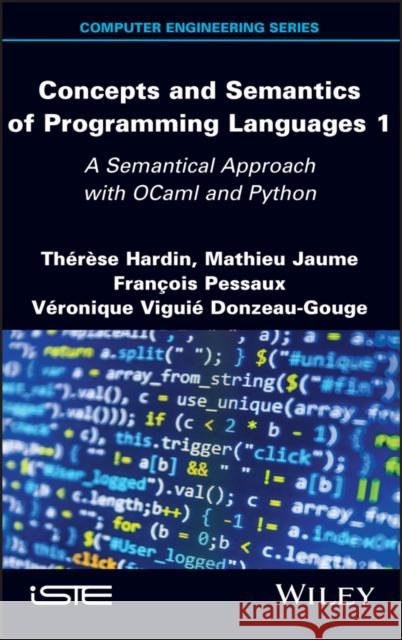Concepts and Semantics of Programming Languages 1: A Semantical Approach with Ocaml and Python » książka
topmenu
Concepts and Semantics of Programming Languages 1: A Semantical Approach with Ocaml and Python
ISBN-13: 9781786305305 / Angielski / Twarda / 2021 / 336 str.
Kategorie:
Kategorie BISAC:
Wydawca:
Wiley-Iste
Język:
Angielski
ISBN-13:
9781786305305
Rok wydania:
2021
Ilość stron:
336
Waga:
0.63 kg
Wymiary:
23.39 x 15.6 x 1.91
Oprawa:
Twarda
Wolumenów:
01
Dodatkowe informacje:
Bibliografia
Wydanie ilustrowane
Wydanie ilustrowane











